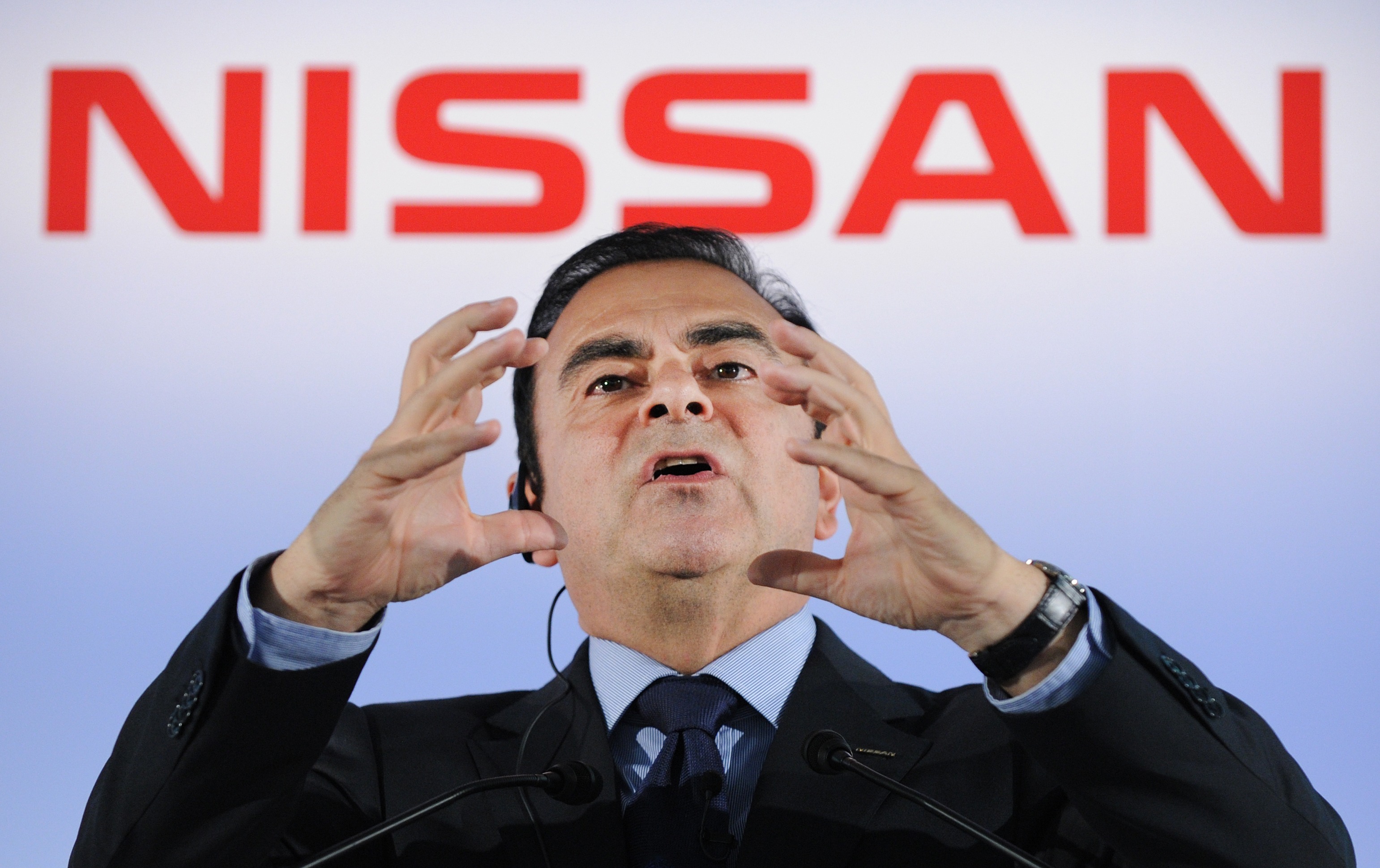Carlos Ghosn: ‘le Cost Killer’ in a Japanese cell
Carlos Ghosn said turning around Nissan was his greatest joy, next to his family (TORU YAMANAKA)
Tokyo (AFP) – A once-revered auto tycoon who flew around the world in a private jet and sat at the helm of three huge car companies, Carlos Ghosn’s journey to a Japanese cell is one of the most precipitious downfalls in corporate history.
Ghosn’s life was turned upside down on November 19 when Japanese prosecutors stormed his aircraft brandishing multiple accusations of financial misconduct, and whisking him off to the Tokyo detention centre where he has languished ever since.
It was from this centre he gave a combative interview to AFP and a French newspaper, charging that refusal to grant him bail “would not be normal in any other democracy of the world.”
In the space of two months, the 64-year-old has been sacked from Japanese car giants Nissan and Mitsubishi Motors and resigned from French manufacturer Renault. He has already lost his business empire. But the battle to clear his name is just beginning.
Totally at ease among the champagne receptions of the world’s elite at Davos and on the red carpet at the Cannes film festival, Ghosn came to epitomise “globalisation”.
A polyglot and holder of three passports, he wrote in an autobiography that “just as globalisation and identity describe Nissan, they also perfectly express my life.”
Born Carlos Ghosn Bichara in Brazil on March 9, 1954 to Lebanese parents, he moved as a toddler back to Lebanon where he was educated in a multicultural Jesuit school by teachers from France, Lebanon, Syria and Egypt.
He completed his education in France, where he gained citizenship, and lived for many years in the United States.
– ‘Fix the company’ –
At the age of 24, he was recruited by tyre firm Michelin where he embarked on a brilliant career and earned his nickname as a “cost killer.”
He moved to Renault in 1996, bringing a brutal early-rising work ethic to the French firm and again slashing costs wherever possible.
In 1999, he took a massive gamble on the struggling Nissan with a mandate to turn it around.
A self-confessed “inflexible” boss, he ordered a series of “sacrifices” — five factories closed, 20,000 jobs cut.
After a “honeymoon period when he was admired and seen as a hero”, his authoritarian methods began to grate, according to employees.
Ghosn himself said he did everything he could to ingratiate himself with Nissan.
“For the general shareholders meeting, I had practised bowing at 30 and 60 degrees. But I was there for one reason: to fix the company.”
Tensions mounted when he became head of Renault in 2005 and he added a third hat by becoming chairman of Mitsubishi Motors in 2017 — earning him millions of euros per year.
Lavish displays of wealth did not endear him to the Japanese, where corporate bosses tend to be less well compensated than their western counterparts.
In 2016, he threw a huge party at the Palace of Versailles outside Paris, complete with actors dressed in period costume.
From the vast platters of fresh fruit at that reception to the rice-based diet at his detention centre, it has been a rude fall from grace.
Ghosn is convinced he is the victim of a “plot” by Nissan executives to oust him and strenuously denies the charges he faces of under-reporting his salary and seeking to transfer personal investment losses to company books.
“Is it a trap? Is it a plot? It’s obvious: it’s a story of betrayal,” Ghosn said in his AFP interview.
– ‘Unplanned path’ –
His son Anthony Ghosn, 24, has painted a picture of a devoted family man.
In an interview just ahead of his father’s sole court appearance so far, Ghosn junior said: “He takes his role as a father even more seriously than his role as head of a major company.
“For him, family is always the priority.”
Ghosn senior said not being able to speak to his family and missing his daughter’s birthday for the first time were the hardest parts of his detention.
“What will I do next?” Ghosn mused in 2017. The answer: spend more time with his family and grand-children. He also hoped to teach or support other businesses, harnessing his extraordinary experience in the corporate world.
“I won’t settle in one place. I will travel all over the world. I cannot conceive of spending all my time in just one country,” he said.
Now, in a bid to win bail, he has assured the court he would stay in Tokyo and await trial, offering to wear an ankle bracelet if necessary — a device never used in Japan.
In his only public appearance since his arrest, he was led into court with a rope around his waist and wearing plastic slippers. He was noticeably slimmer but seemed healthy.
He has faced adversity before — at the age of two, he accidentally drank some unboiled water and nearly died. He has talked of ups and downs in prison — and in life.
“Life has a way of following its own unplanned path,” he once wrote.
But he could scarcely have imagined the route it would take over the past two months.
Disclaimer: This story is published from a syndicated feed. Siliconeer does not assume any liability for the above story. Validity of the above story is for 7 Days from original date of publishing. Content copyright AFP.


